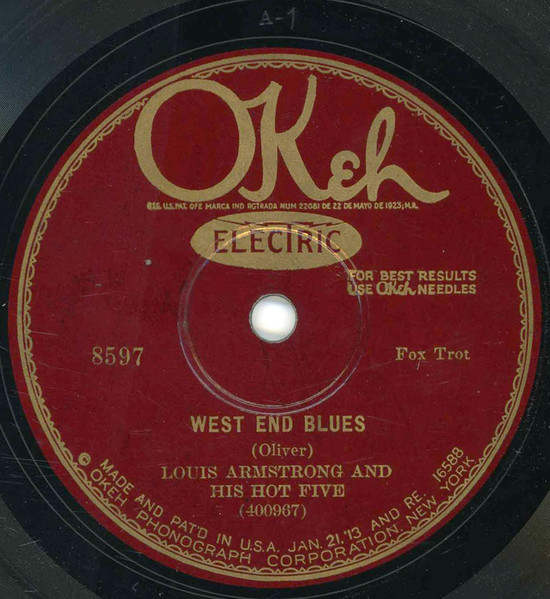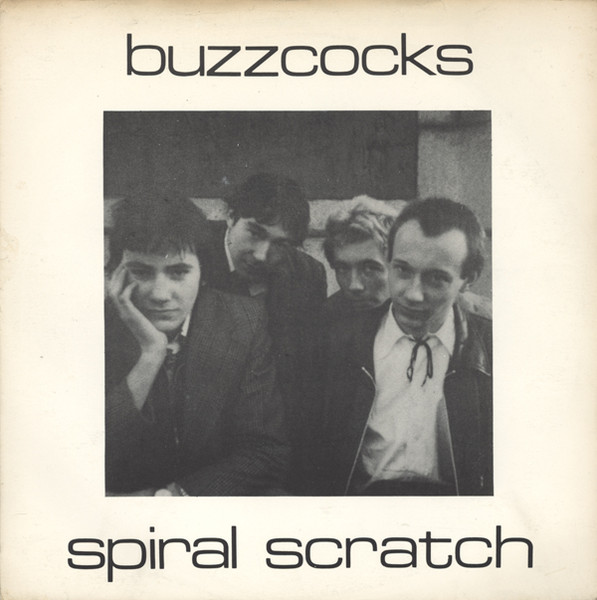Saturday, December 7, 2024
7. Glass Enclosure
Bud Powell: The Amazing Bud Powell, Vol. 2 (Blue Note, 1954);
composed by Earl Rudolph Powell
This is a through-composed miniature suite that Powell wrote, reportedly, while semi-imprisoned by the owner of Birdland who wanted to ensure Powell would be in shape to play a scheduled date. But even though the “enclosure” was probably that apartment rather than Bellevue, where Powell had been committed more than once by then, it does not matter all that much to the nightmare the music immediately brings to mind. Bud Powell’s brilliance is something we know primarily by implication. Not that he left no artifacts; he made some astounding recordings that only began to bland out after the mid-‘50s when the schizophrenia got too much for his playing to fend off. But that he was fully a peer of Parker and Monk is something we have to deduce from clues like this recording, which is unlike anything else Powell did and unlike anything any of his peers put on record, but still emblematic of what Mingus once said about the bebop theoreticians: that they should go down as composers above all else. Their improvisational calculus was as much about opening up unkown galaxies of musical material as to constitute some sentimental ideal of free expression, which is a sunk cost.
Note: 25 secular essays about 25 songs, each one exactly 200 words long, appearing one per day (on average) during Advent (or the moral equivalent).
Friday, December 6, 2024
6. T.B. Sheets
Van Morrison: Blowin’ Your Mind! (Bang, 1967);
composed by Van Morrison
After THEM never quite broke, Van Morrison got a solo deal with the mobbed-out Bert Berns, as did Neil Diamond. Both signees had AM radio hits right out of the box. The catch was that Van also wanted his debut album to have its own “Desolation Row” or “Sad Eyed Lady of the Lowlands.” Except that Van’s take on such quasi-mystical sexual obsession was a ten-minute epic about a real-life girlfriend dying of tuberculosis. Preceding it on the original LP side was the up-and-over “Brown Eyed Girl,” followed by a bitter cuckold’s rumination called “He Ain’t Give You None.” After which a group of studio musicians - probably wondering what the hell this Belfast maniac could possibly be going for – hit on a weird midtempo shuffle with Eric Gale’s tremeloed guitar figure continually bumping against blasts from Van’s harmonica that are the song’s hook. Every so often Van rattles off verses that sound like a verbatim transcript of what he might have said to his lover not long before she died in a bedsit with the windows open, fetching water and wine and trying to get away before the smell of death knocked him flat. He did not make it.
Note: 25 secular essays about 25 songs, each one exactly 200 words long, appearing one per day (on average) during Advent (or the moral equivalent).
Thursday, December 5, 2024
5. Entertain
Sleater-Kinney: The Woods (Sub Pop, 2005);
composed by Carrie Brownstein, Corin Tucker, and Janet Weiss
By the time I caught them live, I already liked them, but it had not been any kind of overnight conversion. The aspects that some (men mostly, damn it) find off-putting about them – Corin Tucker’s piercing warble and the absence of bass – are not just things to get used to. Either you fall in love with those things outright or the intensity of this music will be unreadable to you. You have to come to them. Since I am greedy and not having access to a catalogue of great music like theirs is intolerable to me, I buckled down. And when I saw them, I understood their two-guitar system, too. The trick is that Corin Tucker plays bass lines, but on a regular guitar. Accordingly, the entirety of their music happens in the same trebly register, requiring a more precisely-tuned wiring to accommodate the information surge. This particular tune knocked me out both on record and live. The verse is Carrie Brownstein laying out their ambivalent cultural theory: “We're not here cause we want to entertain / You can go away, don't go away.” And the monster hook is the chorus consisting only Corin Tucker going “OH – OH – OH!!!!”
Note: 25 secular essays about 25 songs, each one exactly 200 words long, appearing one per day (on average) during Advent (or the moral equivalent).
Wednesday, December 4, 2024
4. West End Blues
Louis Armstrong & His Hot Five (OKeh 8597, 1928 – b/w “Fireworks”);
composed by Joseph Nathan “King” Oliver
In the context of jazz history – only a decade old (on shellac anyway) when this record came out – liking this can be a little like saying your favorite painter is Rembrandt when you have no idea of how large The Night Watch is. That is only to say you could not possibly be wrong, but you will always have miles to go. Coming to it cold today, without context, you admire Armstrong’s jaunty solo trumpet introduction, setting up the entrance of his sidemen playing in a stately march rhythm, followed by Earl Hines’ languorous piano solo, Armstrong’s wordless vocalese against Johnny Dodds’s clarinet solo, and one more solo by Armstrong against the bias (in the couture sense of the word). Nothing is missing, except that in 1928, this record was a ferocious lightning bolt and about as avant-garde as something so popular ever is. It has several different tempos simultaneously. It has several different musical styles simultaneously. The opening solo – which was reportedly based on figures from a trumpet exercise book – took what had heretofore been a military band instrument, bent time and space with it, and squared the circle with the closing fusillade. This was impossible. It still is.
Note: 25 secular essays about 25 songs, each one exactly 200 words long, appearing one per day (on average) during Advent (or the moral equivalent).
Tuesday, December 3, 2024
3. Boredom
Buzzcocks: Spiral Scratch (New Hormones, 1977);
composed by Peter McNeish and Howard Trafford
From the first nearly homemade record of its primitivist era to move real units with no serious biz money behind it (Pistols and Clash only recorded for major labels) by a great band that would within a few months share a (major) label and producer with the Stranglers. Buzzcocks stayed great, and arguably better in some ways than this bilious version which only very briefly contained the sensibilities of both Howard Devoto – who took his mewling pinhead routine in a more exploitable direction with his own group Magazine – and Pete Shelley who transmuted his own hyper-sexual rage into a tortuous and temporally indecipherable roar of guitars over drums that sounded like a capsized lawnmower left running. Even cheerful, the Buzzcocks sounded like you might lose a finger if you leaned in too close to the machinery. On this track, the band’s disorienting blur broken up by sudden halts and jokey vocal interjections, perfectly contextualizes Devoto’s non-ethos: “You know me, I'm acting dumb / You know the scene, very humdrum / Boredom, boredom, boredom-om-mmm! (Ba-dum, ba-dum!)” It sounds remorselessly fast and dreadfully slow at the same time. It simultaneously encapsulates its subject and turns it all the way around. Punk rock.
Note: 25 secular essays about 25 songs, each one exactly 200 words long, appearing one per day (on average) during Advent (or the moral equivalent).
2. (Talk To Me Of) Mendocino
Kate & Anna McGarrigle (Warner Bros., 1975);
composed by Kate McGarrigle
Closing the first side of this great, simultaneously gemütlich and itchily disturbing debut album is the usually droll Kate’s solemn elegy to a personal geography that seems so random – New York State? Indiana? – that one has to assume it’s all really about the kind of observer she was becoming in each place, at each time, and in each verse as you hear it. A likely counterpart to its strangely prim opening “farewell to the state of old New York” is “Saratoga Summer Song,” only recorded as a demo around the same time. In that song, Kate describes a group of other “nice young adults” communing near Saratoga one summer in the early ‘70s - getting high, skinny dipping, never sleeping alone, who “weren't too smart and we had a bust,” but so what – “[W]e who are free / Swing like the rope from that tree.” “Saratoga” is a great one, but “Mendocino” was always the keeper, not just because it’s a gorgeous hymnlike non-hymn, but because it’s just as specific as “Saratoga” except instead of “dope and lust,” there is only the sunrise over the redwoods. “I'll rise with it till I rise no more.” Could you say as much?
Note: 25 secular essays about 25 songs, each one exactly 200 words long, appearing one per day (on average) during Advent (or the moral equivalent).
Sunday, December 1, 2024
1. Talking Bear Mountain Picnic Massacre Blues
Bob Dylan: The Bootleg Series, Vol 1-3: Rare & Unreleased 1961-1991 (Columbia, 1991; recorded 1962);
composed by Bob Dylan
In the hallowed folk tradition, Robert Zimmerman’s oeuvre has more than its share of other people’s tunes, one being this direct lift from Woody Guthrie’s “Talking Sailor.” Not to say that it was Woody’s tune, as that was just some jaunty strumming underlying the iambic deadpan. But Woody’s not-so-reverent apprentice turned his 1944 narrative of a unionized merchant marine trucking fascist-killing ordnance over the Pacific into a post-Eisenhower parody in which an utterly oblivious picnicking enthusiast takes his wife and their “whole kids . . . yippee . . . ” on a ferry that sinks, leaving him scrambling from the Hudson an apparently shattered basket case, but ever so cheerfully “lucky to be ALIVE, though!” For a supposedly great versifier it may seem unfair to lionize Dylan for his jokes, except that – from the parking meter turned cigarette lighter to the other man’s pillbox hat fetish to “you just sit around and ask for ashtrays – can’t you reach?!?” - his jokes are even more for the ages than anything else he sent barreling down the chute. And there is no more inexhaustible comedy record by anyone than this – unless you count “Clothes Line Saga” which deftly inserted Hubert Humphrey into “Ode To Billy Joe,” where he belonged.
Note: 25 secular essays about 25 songs, each one exactly 200 words long, appearing one per day (on average) during Advent (or the moral equivalent).
Subscribe to:
Posts (Atom)






